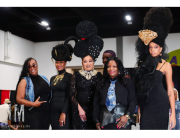In every industry — from fashion to film, tech to television — there’s an unspoken hierarchy. At the top often sit self-appointed gatekeepers: individuals who hoard opportunities, withhold access, and act as the arbiters of who gets to rise and who stays in the shadows. Alongside them are the “industry mean girls” — not always female, but always toxic — who weaponize exclusivity, gossip, and elitism to maintain control.
We’ve all encountered them. The PR girl who won’t reply to your emails unless you have 100k followers. The creative director who discredits newcomers while recycling tired ideas. The colleague who smiles in your face but blocks your name from the guest list. These characters thrive on intimidation, scarcity, and the illusion that success only has room for a chosen few.
But here’s the truth: gatekeeping is fear dressed up as power. And it’s costing us far more than awkward energy at events or missed invitations. It’s stifling creativity, silencing diverse voices, and slowing the progress of entire industries.
What Is Gatekeeping?
Gatekeeping is the practice of controlling access to something — information, opportunities, platforms, or power. In theory, gatekeeping can protect standards. In practice, it often protects privilege.
It shows up in subtle and overt ways:
● Denying entry to events or rooms unless you “know someone.”
● Refusing to mentor or support others without expecting something in return.
● Dismissing or undermining new talent.
● Creating “in-crowds” and social circles that exclude those who look, sound, or think differently.
The Rise of the Industry Mean Girl
The “mean girl” trope didn’t die in high school — it evolved. In today’s industries, it wears designer clothes, posts cryptic captions, and uses passive aggression like a press release. These individuals thrive in systems built on competition instead of community, and they feed off the insecurity of others.
What’s worse is when people who once felt excluded finally “make it” — and then turn around and become gatekeepers themselves. Instead of dismantling the walls, they reinforce them, perpetuating the same cycles of exclusion they once fought against.
The Damage This Culture Does
Gatekeeping and mean-girl behavior don’t just bruise egos — they harm entire ecosystems:
● Talent gets overlooked. Brilliant creators are passed over because they don’t “fit the vibe” or haven’t been co-signed by the right clique.
● Innovation slows down. When the same few people control what gets seen, we end up with repetition instead of evolution.
● Mental health suffers. Constantly proving yourself in an environment built on favoritism is emotionally and spiritually exhausting.
So, How Do We Change It?
1. Build Bridges, Not Fences.
True power is not in exclusion — it’s in expansion. If you’re in a position of influence, ask yourself: Who can I open a door for today? Make introductions, share resources, pass the mic.
2. Celebrate Collaboration Over Competition.
There’s enough room for all of us. Success isn’t pie — giving someone else a slice doesn’t shrink yours. Collaborate with people who are different than you. Challenge your comfort zone.
3. Create Transparent Pathways.
Make your hiring, mentoring, and booking processes clear. Don’t keep knowledge behind velvet ropes. Share the blueprint.
4. Hold Each Other Accountable.
Call out gatekeeping behavior — gently when possible, firmly when necessary. And more importantly, don’t emulate it when it’s your turn.
5. Redefine What Success Looks Like.
Clout and exclusivity are weak currencies. We should value impact, generosity, creativity, and character. If your success requires silencing others, it’s not success — it’s ego.
6. Nurture a Culture of Inclusion.
Whether you’re curating a panel, hosting an event, or leading a team, ask, Who’s missing from the room? Then make sure they’re invited.
A New Industry Standard
It’s time we build a culture where kindness is currency, transparency is power, and community is strategy. A culture where we don’t have to fight to be “let in,” because the doors were never closed to begin with.
Let’s disrupt the toxic traditions of elitism and fear, and create industries rooted in accessibility, empathy, and shared success.
The era of the gatekeeper is ending. And we’re the ones tearing down the walls.
Photo Credit: ShutterStock







Add Comment
You must be logged in to post a comment.